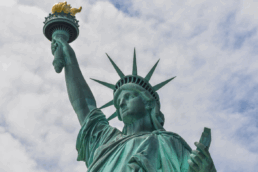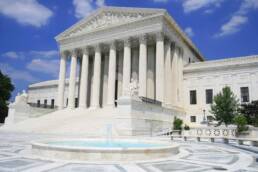On October 11, 2019, three federal courts prevented the Department of Homeland Security (DHS) and the United States Citizenship and Immigration Services (USCIS) from implementing the new DHS Public Charge final rule. The rulings came from Federal Judges in New York, Washington and California.
Judge George Daniels from the United States District Court for the District of New York issued a preliminary injunction that prohibits “enforcing, applying, or treating as effective” DHS’s final public charge rule. In addition, Judge Daniels specifically ruled that USCIS may not require the use of updated Forms I-129, I-485, I-539, I-864, I-864 EZ, I-944 and I-945. He noted in his order that the government has not adequately explained why it was changing the definition of a “public charge” or why the change was needed. Further, Judge Rosanna Malouf Peterson in Washington state also blocked the new regulation nationwide, while U.S. District Judge Phyllis Hamilton prevented the enforcement within the jurisdiction of the 9th Circuit Court of Appeals.
Their decisions came just days before the new rule was slated to take effect: Today, October 15th.
These three suits are among nearly a dozen of ongoing cases that are challenging the new public charge rule. While these suits play out, the implementation of the DHS’s new rule will be on hold. It is important to note that the U.S. Department of State (DOS), who issued their own equivalent of DHS’s public charge rule for applicants applying for visas from abroad, has confirmed that their own rule is still to become effective today, despite these three federal court injunctions. A DOS official says that their new rule will not be implemented, however, until a new form is approved.
On August 14, 2019, DHS published final rule in the Federal Register amending the regulations related to the “public charge” ground of inadmissibility. This new regulation would give immigration officials much more leeway to deny applications for green cards and visas filed by legal immigrants who may use certain government benefits or who authorities determine will rely on welfare assistance in the future. Now, instead of determining whether an immigrant is likely to become primarily dependent on the government for income support, the new rule defines public charge as a person who receives any number of public benefits for more than a total of 12 months over any three year period of time.
Further, the new regulation expands the list of publicly-funded programs that immigration officials may consider. Immigration officials would also consider the immigrant’s age, educational skills, English language proficiency, and health to determine whether they are likely to rely on the government for support. This new regulation would not affect asylum seekers, refugees, or holders of special visas for Iraqi and Afghan nationals who helped U.S. forces in those countries.
This new regulation, if implemented, will mainly impact those seeking permanent resident status through family member petitions. However, there are many categories of immigrants exempt from the public charge rule. If you are in the process of, or contemplating applying for a visa or an adjustment of status to lawful permanent resident, it is critical to stay updated on the status of these lawsuits.
If you have any questions on how this new rule will affect your application, please contact one of our knowledgeable attorneys at Berardi Immigration Law today to schedule a consultation.
Ready to have Berardi on your side?
Whether you’re a business looking to hire or a professional hoping to relocate, immigration law can be complicated. But you don’t have to do it alone. Put our experience to work for you.



